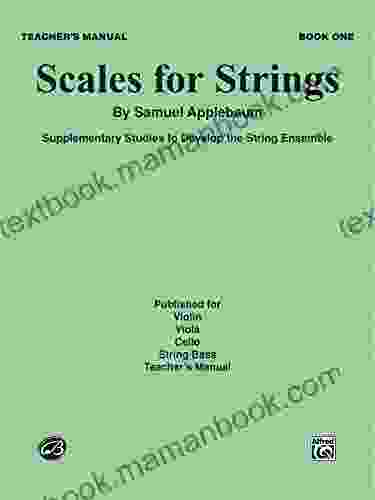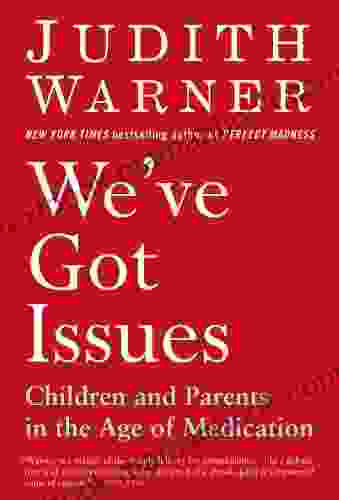Children and Parents in the Age of Medication: Exploring the Impact of ADHD and Anxiety Medications on Family Dynamics


In the 21st century, the use of medication to treat childhood mental health disorders has become increasingly prevalent. As many as 20% of children in the United States are diagnosed with attention deficit hyperactivity disorder (ADHD),and approximately 13% are diagnosed with an anxiety disorder. These conditions can significantly impact children's academic performance, social interactions, and overall well-being.
4.3 out of 5
| Language | : | English |
| File size | : | 857 KB |
| Text-to-Speech | : | Enabled |
| Screen Reader | : | Supported |
| Enhanced typesetting | : | Enabled |
| Word Wise | : | Enabled |
| Print length | : | 335 pages |
While medication can be an effective way to manage these conditions, it also raises important questions about its impact on children and families. How does medication affect children's development? How do parents navigate the decision of whether or not to medicate their child? What are the potential consequences and benefits of medication use?
This article will explore these issues by examining the research on ADHD and anxiety medications, as well as the experiences of children and parents who have been affected by these medications.
The Rise of Childhood Mental Health Medication Use
The use of medication to treat childhood mental health disorders has increased dramatically in recent decades. In 1990, only about 1% of children in the United States were taking ADHD medication. By 2010, that number had increased to 11%. Similarly, the use of anxiety medication in children has also increased significantly.
This increase in medication use is likely due to several factors, including:
* Increased awareness and diagnosis of ADHD and anxiety disorders * Development of new and more effective medications * Increased pressure on children to succeed academically and socially * Decreased stigma associated with mental illness
The Impact of Medication on Children
Medication can have a significant impact on children's behavior, academic performance, and social interactions. Some studies have shown that ADHD medication can improve children's attention and focus, reduce hyperactivity and impulsivity, and improve their academic performance. Similarly, anxiety medication can help to reduce children's anxiety symptoms, improve their mood, and make them more comfortable in social situations.
However, medication can also have side effects, such as:
* Difficulty sleeping * Loss of appetite * Stomachaches * Headaches * Mood swings * Increased heart rate
It is important to weigh the potential benefits of medication against the potential risks before deciding whether or not to medicate a child.
The Role of Parents
Parents play a crucial role in the decision of whether or not to medicate their child. They must weigh the potential benefits and risks of medication, consider their child's individual needs, and work with their child's doctor to develop a treatment plan.
Parents should also be aware of the potential impact of medication on their child's family dynamics. For example, medication can change a child's behavior, which can affect their interactions with their siblings and parents. Parents may also need to adjust their own parenting style to accommodate their child's medication use.
The Long-Term Effects of Medication
The long-term effects of childhood mental health medication use are not fully known. Some studies have shown that children who take ADHD medication may be at increased risk for developing substance abuse problems and depression later in life. However, other studies have found no such link.
More research is needed to determine the long-term effects of childhood mental health medication use. In the meantime, parents should carefully consider the potential benefits and risks of medication before making a decision about whether or not to medicate their child.
The use of medication to treat childhood mental health disorders is a complex issue with no easy answers. There are potential benefits and risks associated with medication use, and parents must weigh these factors carefully before making a decision about whether or not to medicate their child.
It is important to remember that medication is not a cure-all for childhood mental health disorders. It can be an effective way to manage symptoms, but it is not a substitute for therapy and other behavioral interventions. Parents should work with their child's doctor to develop a treatment plan that addresses their child's individual needs.
4.3 out of 5
| Language | : | English |
| File size | : | 857 KB |
| Text-to-Speech | : | Enabled |
| Screen Reader | : | Supported |
| Enhanced typesetting | : | Enabled |
| Word Wise | : | Enabled |
| Print length | : | 335 pages |
Do you want to contribute by writing guest posts on this blog?
Please contact us and send us a resume of previous articles that you have written.
 Top Book
Top Book Novel
Novel Fiction
Fiction Nonfiction
Nonfiction Literature
Literature Paperback
Paperback Hardcover
Hardcover E-book
E-book Audiobook
Audiobook Bestseller
Bestseller Classic
Classic Mystery
Mystery Thriller
Thriller Romance
Romance Fantasy
Fantasy Science Fiction
Science Fiction Biography
Biography Memoir
Memoir Autobiography
Autobiography Poetry
Poetry Drama
Drama Historical Fiction
Historical Fiction Self-help
Self-help Young Adult
Young Adult Childrens Books
Childrens Books Graphic Novel
Graphic Novel Anthology
Anthology Series
Series Encyclopedia
Encyclopedia Reference
Reference Guidebook
Guidebook Textbook
Textbook Workbook
Workbook Journal
Journal Diary
Diary Manuscript
Manuscript Folio
Folio Pulp Fiction
Pulp Fiction Short Stories
Short Stories Fairy Tales
Fairy Tales Fables
Fables Mythology
Mythology Philosophy
Philosophy Religion
Religion Spirituality
Spirituality Essays
Essays Critique
Critique Commentary
Commentary Glossary
Glossary Bibliography
Bibliography Index
Index Table of Contents
Table of Contents Preface
Preface Introduction
Introduction Foreword
Foreword Afterword
Afterword Appendices
Appendices Annotations
Annotations Footnotes
Footnotes Epilogue
Epilogue Prologue
Prologue Kelly Walker Edwards
Kelly Walker Edwards Stacey Marie Brown
Stacey Marie Brown Helen E Davis
Helen E Davis Kenneth Rosenberg
Kenneth Rosenberg Amber Rain
Amber Rain Kalimah El
Kalimah El Leah Penniman
Leah Penniman David Hare
David Hare Lh Nicole
Lh Nicole Tom Standage
Tom Standage Tom Greever
Tom Greever Robert Storey
Robert Storey Alex Ross
Alex Ross Sharon Lee
Sharon Lee Eric Clapton
Eric Clapton Jeanne Frith
Jeanne Frith Dennis J Henson
Dennis J Henson Luciano Simonelli
Luciano Simonelli Lillian Ross
Lillian Ross Ron Nash
Ron Nash
Light bulbAdvertise smarter! Our strategic ad space ensures maximum exposure. Reserve your spot today!

 Craig CarterAbducted in the Keys: A Thrilling Adventure That Will Leave You on the Edge...
Craig CarterAbducted in the Keys: A Thrilling Adventure That Will Leave You on the Edge...
 Dallas TurnerMan of Iron: A Guide to the Mysterious and Powerful Construct in Blackstone...
Dallas TurnerMan of Iron: A Guide to the Mysterious and Powerful Construct in Blackstone...
 John MiltonThe Collected Short Stories of Louis L'Amour: A Literary Exploration of the...
John MiltonThe Collected Short Stories of Louis L'Amour: A Literary Exploration of the... Cason CoxFollow ·10k
Cason CoxFollow ·10k Percy Bysshe ShelleyFollow ·15k
Percy Bysshe ShelleyFollow ·15k Ryan FosterFollow ·17.1k
Ryan FosterFollow ·17.1k DeShawn PowellFollow ·9.7k
DeShawn PowellFollow ·9.7k Haruki MurakamiFollow ·13.9k
Haruki MurakamiFollow ·13.9k Charles DickensFollow ·10.2k
Charles DickensFollow ·10.2k Thomas MannFollow ·9.3k
Thomas MannFollow ·9.3k Jim CoxFollow ·11.4k
Jim CoxFollow ·11.4k

 Forrest Reed
Forrest ReedHulusi Darende's Poems: Unraveling the Lyrical Tapestry...
: A Journey into the Heart of Sufi...

 Gabriel Blair
Gabriel BlairAct of Terror: A Jericho Quinn Thriller
In the heart-pounding...

 Zadie Smith
Zadie SmithScales for Strings Teacher Manual: A Comprehensive Guide...
Scales are fundamental building blocks of...

 Hugo Cox
Hugo CoxMermaid (NHB Modern Plays) Polly Teale
The Mermaid NHB Modern Plays series, a...
4.3 out of 5
| Language | : | English |
| File size | : | 857 KB |
| Text-to-Speech | : | Enabled |
| Screen Reader | : | Supported |
| Enhanced typesetting | : | Enabled |
| Word Wise | : | Enabled |
| Print length | : | 335 pages |










